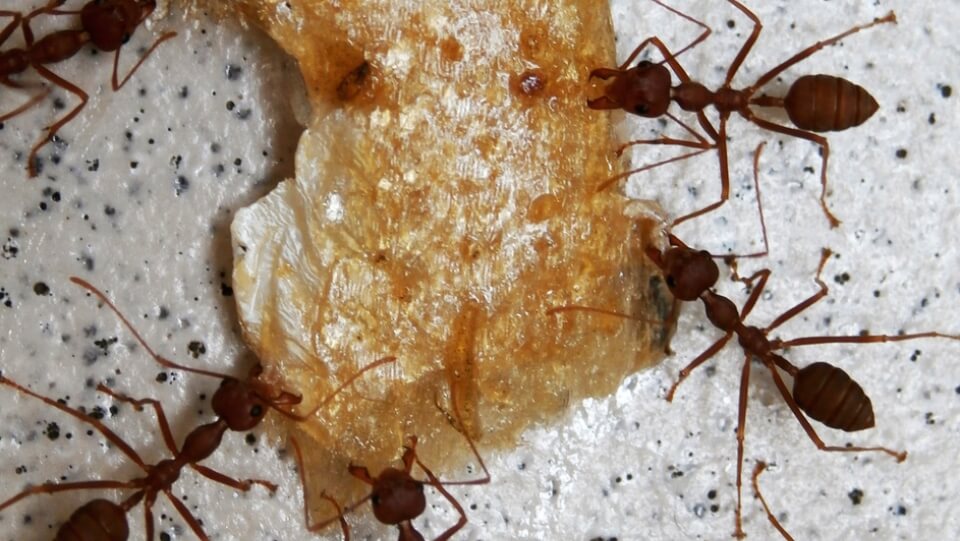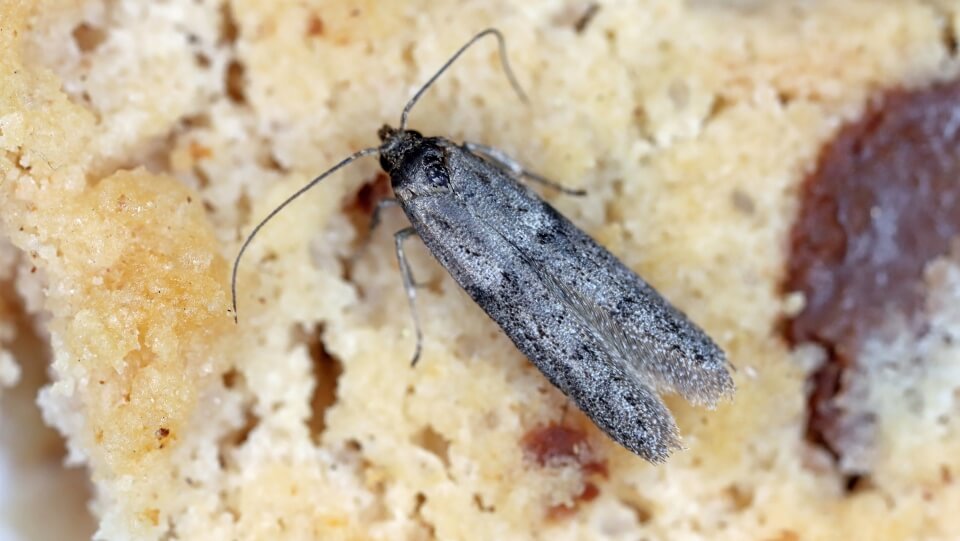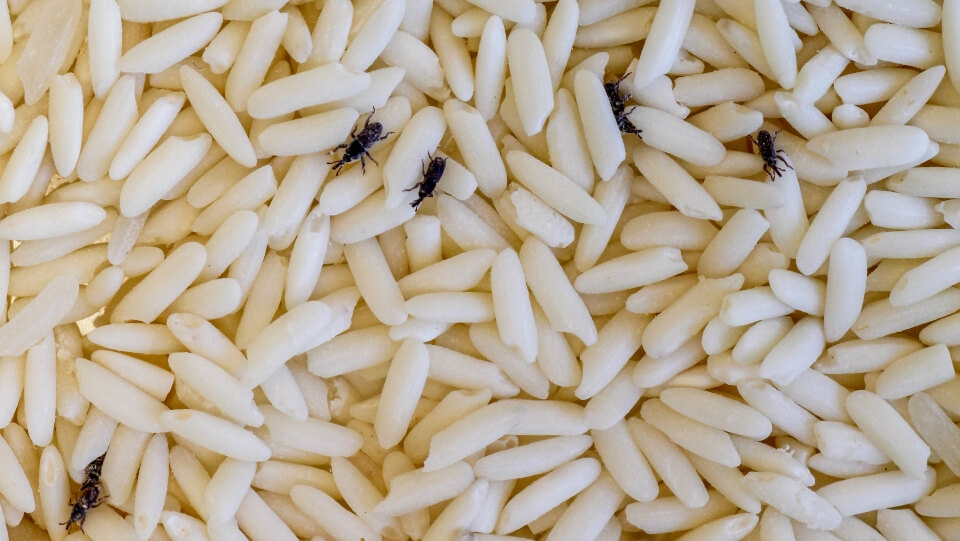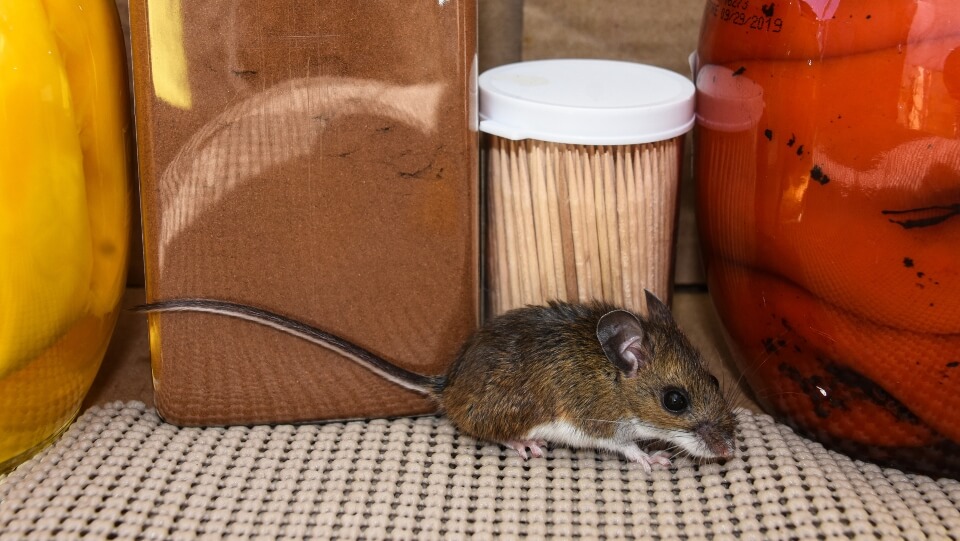Survivalists spend a lot of time building their pantries for SHTF situations, and the last thing you want is an army of ants to ruin it in just a few hours.
As the weather gets warmer, bugs want to beat the heat too. They didn’t pay for your groceries, so don’t let them get into your pantry and eat your food. Here are seven tips for safer stockpiling in your pantry.

1. Clean Regularly
The first step in keeping pests out is to clean your pantry regularly. Over time, crumbs from bread, chip and cereal bags can accumulate on the floor. These tiny food particles are practically a buffet for ants and roaches.
About once a month, remove the food from your pantry and clean every rack and shelf. In the summer, you should clean twice a month because of the increase in bugs. These pests seek food and moisture, so ensure they don’t get what they want in your house.
2. Use Airtight Containers
It’s challenging to prevent every bug from entering your pantry, so you must protect your food as much as possible. The best way to protect your dry food in the pantry is to use airtight containers. These capsules are ideal for storing food because there’s no way bugs can enter and you’re protecting the food from mold. Survivalist essentials like rice and pasta are much safer in airtight containers.
Luckily, there are a few options for obtaining airtight containers. Many survivalists use glass jars with sealed lids, such as mason jars. Another suitable choice is plastic storage containers. These cartons are sturdy, airtight and can hold large amounts of food if you buy large sizes. You can use zip-top bags to keep food fresh and pest-free for smaller, individualized portions.
3. Seal Cracks

How can you keep pests out of your pantry in the first place? The first step is to inspect the entry points for cracks. Remind yourself how tiny bugs are, and how they fit through even the narrowest cracks and crevices. It’s worthwhile to break out the flashlight and magnifying glass to be sure there are no gaps in the pantry walls. The bugs could be coming from anywhere, so examine the walls in each room.
If you see cracks, sealing them as quickly as possible is essential. Use caulk to close these entry points and deter even the tiniest pests. Also, pay attention to the doors and windows. If they don’t have proper sealing, use weatherstripping to fix the problem. Weatherstripping is a good practice because it reduces air leakage and energy consumption.
4. Remember to Rotate
Stocking food for SHTF situations is a survivalist staple. However, some people forget to rotate their food supplies. It’s critical to track when you purchased particular food items and use the oldest ones first. Once in a while, you should inspect the food in your pantry and check the expiration dates. Old, expired food is the last thing you want in your pantry. Rotating food is even more critical when you cook for just yourself so your supplies last longer in the house.

When food ages past the expiration date, it exudes strong odors. These smells attract bugs like beetles and moths because they have sharp senses of smell. Decomposing food in your pantry often releases gas and moisture, making an ideal environment for bugs. The pests could make it even worse by laying eggs there.
5. Keep It Dry
Bugs look much different from humans but share some of the same priorities — they want food, water and shelter. Unfortunately, your pantry may be the prime place to get the moisture. Moist areas provide ideal breeding grounds for bugs, so keeping the environment as dry as possible is essential.
There are a few ways to keep your pantry dry. First, consider a dehumidifier. This machine removes moisture from the air and reduces the risk of bug infestations. Proper ventilation from fans and air vents also keeps the area free of dampness. Small items like silica gel packets or activated charcoal can also help keep your pantry dry.
6. Store Bay Leaves
Keeping bugs out may require turning to unconventional methods. However, they can still be effective. Pests hate strong smells. What can you place in your pantry that is highly pungent? Herbs and seasonings are used by many people.
Bay leaves are a terrific repellent for bugs because they hate the smell. They effectively deter cockroaches without killing them, so place them in your dry food containers and shelves to create barriers. Double-sided tape lets you stick the bay leaves to your pantry walls. Some survivalists use cheesecloth to place the bay leaves in bags and hang them around the pantry as a repellent.
7. Set Up Traps

Some bugs are determined to get past any barrier to obtain their food. Another way to stop them is to set up traps in the pantry. You can use conventional methods like mouse traps to prevent rodents from infiltrating the pantry, but you can also use home remedies.
For example, try creating an ant trap by mixing borax, sugar and water. Borax is odorless, but the sugar and water will lure the ants into your trap. Another effective solution is the vinegar trap. This concoction requires a bowl filled with vinegar and dish soap. Bugs will gravitate toward the vinegar but drown in the liquid mixture.
Keeping Stockpiles Pest-Free
Survivalists invest hundreds upon thousands of dollars in their stockpiles. The last thing you want is to see bugs ruin them. Take special care of your food storage — especially when the weather warms. Try these seven tips to maintain a safe stockpile all year.
